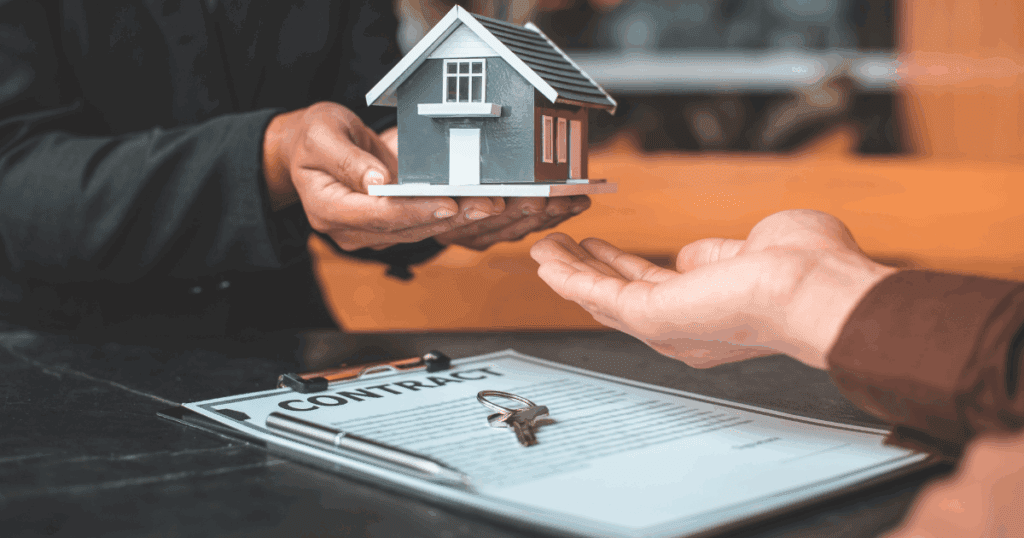- Introduction: Is Renting or Buying the Right Choice for You?
- The Financial Foundations of Renting and Buying
- Assessing Your Personal Finances for Housing Decisions
- Market Conditions and Timing: When Is the Right Time to Buy?
- Weighing Lifestyle Considerations and Future Plans
- The Role of Emotional Factors and Personal Values
- Exploring the Hidden Costs of Renting and Buying
- FAQ – Dúvidas Comuns
- Conclusion

Introduction: Is Renting or Buying the Right Choice for You?
Have you ever found yourself standing at the crossroads of the momentous decision to rent or buy your home, questioning which path is more financially sound? You’re not alone. Many individuals grapple with this dilemma, pondering the pros and cons, the potential for future investments, and the security each option might offer. In today’s volatile housing market, making an informed decision is crucial to safeguard your financial future. With the ebb and flow of economic factors, both personal and global, understanding the intricacies of renting versus buying a home can offer clarity and peace of mind. Join me as I delve into this fundamental question and explore how to make the best choice for your personal situation.
The Financial Foundations of Renting and Buying
When considering whether to rent or buy, it’s essential to grasp the financial implications of each choice thoroughly. Renting may initially appear less daunting financially, primarily due to the lower upfront costs. Typically, renting involves a security deposit and the first month’s rent—a stark contrast to the down payment and additional fees associated with purchasing a home. However, buying a home can offer long-term stability and investment potential, which renting does not.
| Aspect | Renting | Buying |
|---|---|---|
| Upfront Costs | Low – security deposit and first rent | High – down payment and closing costs |
| Monthly Expenses | Fixed – rent, can increase | Variable – mortgage, maintenance |
| Investment Potential | None | Equity building |
| Flexibility | High – easy to move | Low – buying/selling time |
Understanding these aspects can help you make an informed decision, balancing the immediate financial impact with future financial benefits.
Assessing Your Personal Finances for Housing Decisions

Before making any decisions, a deep dive into your personal finances is crucial. Evaluate your monthly budget and savings to determine what you can comfortably afford without jeopardizing your financial stability. This assessment includes considering current and future income sources, existing debt obligations, and potential life changes that might affect your financial situation.
Additionally, factor in the cost of home maintenance and repair when considering buying, as these can be unpredictable and substantial. Renting may offer more stability in monthly expenses, as landlords typically bear the responsibility for major repairs, but this often comes at the expense of increased housing costs over time without the benefit of equity building.
“The choice between renting and buying isn’t just about numbers; it’s a reflection of your lifestyle preferences, financial goals, and personal circumstances.” – Unknown
Market Conditions and Timing: When Is the Right Time to Buy?
Timing the market is notoriously challenging, yet understanding current housing market trends and economic conditions is critical when deciding whether to rent or buy. Interest rates, housing inventory, and local market dynamics can significantly affect the affordability of buying a home. Staying informed about these factors can provide a strategic advantage, helping you make the most advantageous financial decision.
While rental markets can also be influenced by these conditions, they tend to fluctuate less dramatically than the real estate market. However, long-term plans should consider historical trends and expert predictions, ensuring that your choice aligns with broader economic movements and your personal growth.
Weighing Lifestyle Considerations and Future Plans

Your decision to rent or buy should also encompass lifestyle preferences and future plans. If you anticipate significant life changes—such as starting a family, career shifts, or relocating—these factors should heavily influence your decision. Renting provides a level of flexibility that buying cannot, allowing for easier transitions and moves without the burden of selling a property.
On the other hand, purchasing a home can signal long-term commitment and stability and may offer cultural or emotional benefits. Being part of a community, the ability to remodel freely, and the pride of ownership are intangible benefits that can enrich your life experience, albeit often at a higher financial and commitment cost.
The Role of Emotional Factors and Personal Values
While numbers and logic play a significant role in decision-making, emotional factors and personal values often tip the scales. Some individuals view homeownership as a rite of passage or an embodiment of the American Dream, while others prioritize freedom and flexibility. Reflect on what housing means to you beyond the financial implications, and consider how these emotional components align with your overall life philosophy.
Renting may appeal to those valuing minimal obligations and experiencing different environments, while buying might resonate with individuals seeking permanence and community roots. Recognizing these internal drivers can provide clarity when the financial aspects seem evenly matched.
Exploring the Hidden Costs of Renting and Buying
In addition to apparent expenses, both renting and buying have hidden costs that can catch you off guard. As a renter, be prepared for potential rent increases, lease renewal fees, and moving costs. Meanwhile, homeowners often encounter property taxes, homeowners association fees, and unexpected maintenance expenses.
1- Renting: Possible rent hikes contribute to overall expenditure increases.
2- Homebuying: Closing costs and homeowner’s insurance can add significantly to the purchasing price.
3- Both options: Moving costs and setup expenditures can surprise you regardless of your choice.
4- Consider the shadow costs of your decision, as these can cumulatively impact long-term financial health.
By understanding these hidden costs, you can better prepare your financial strategy, ensuring affordability is maintained for the foreseeable future.
FAQ – Dúvidas Comuns
How does my credit score impact the decision to rent or buy?
Your credit score plays a crucial role, affecting both rental applications and mortgage qualifications. A higher credit score might secure better lease terms or mortgage rates.
Are there tax benefits to owning a home?
Yes, homeowners often benefit from tax deductions related to mortgage interest, property taxes, and potential capital gains exclusions upon selling.
What are the risks of buying a home in a volatile market?
If the market declines, your property value could decrease, potentially leading to loss on resale. Market timing and economic health significantly influence these risks.
How does inflation impact renting versus buying?
Inflation can increase rent costs over time, while a fixed-rate mortgage offers payment stability, potentially making buying more favorable during high inflation periods.
What are some common misconceptions about renting?
Many assume renting is ‘throwing money away,’ but it offers flexibility, lower upfront costs, and freedom from long-term commitments compared to owning.
Conclusion
Choosing between renting and buying epitomizes one of life’s pivotal financial decisions, laden with nuance and consequence. Every individual’s circumstances, financial goals, and personal preferences will shape the trajectory of this choice. While there’s no one-size-fits-all answer, understanding each option’s broad and intricate implications allows you to construct a decision aligned with your financial health and life aspirations. Whether you prioritize flexibility or wealth accumulation, the key lies in informed, deliberate contemplation that embraces both the numbers and the narratives of life’s journey.












